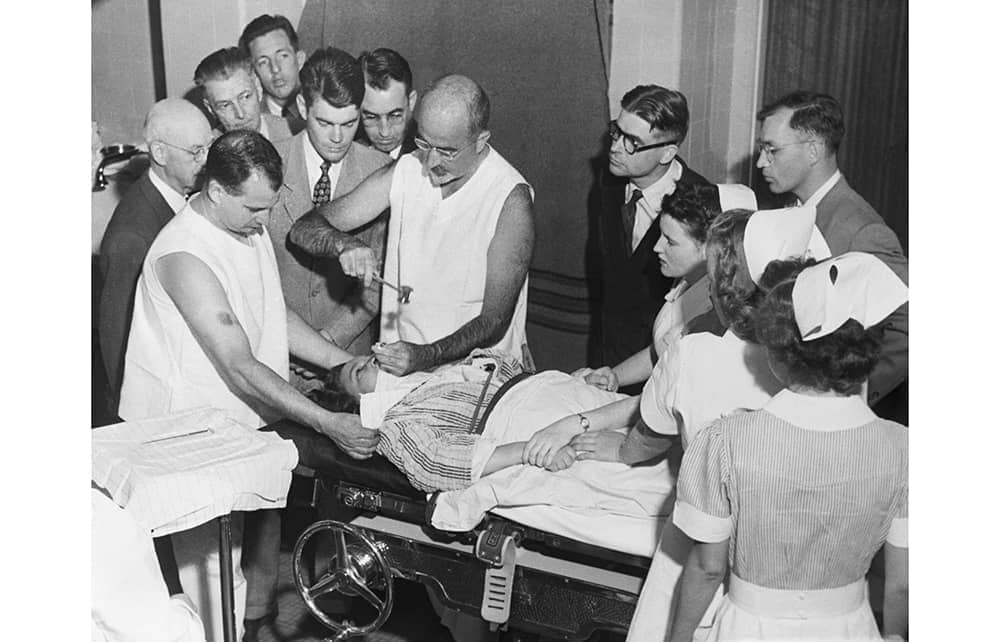There is much more desperation in this searching and enlightening history than there are remedies. Andrew Scull is a distinguished sociologist and scholar of psychiatry. He comes across as wise, sanguine and unsurprised by his findings in this survey of how American – for which also read British – psychiatry has understood and treated the insane, distressed and traumatised from 1820 to the present. His book, however, will leave readers who are unfamiliar with the story horrified and aghast. Since my own breakdown and sectioning in early 2019 I have been working with sufferers, social workers and psychiatrists on improving the understanding and treatment of mental distress. Members of the Critical Psychiatry Network have struck me as particularly troubled by current psychiatric practice, and having read this book, I understand why.
The history of psychiatry is a catalogue of disastrous mistreatment. Accounts of induced comas, electric shocks, chemical straitjackets, lobotomies, brutal incarceration, injustice and cruelty on an industrial scale, and all disproportionately visited on women and black people, make appalling reading. You turn Scull’s pages waiting for something to get better. Freud and psycho-analysis provide some respite, when, for a few years, psychiatry admitted the possibility that mental distress might flow from the minds and life stories of sufferers rather than the brain, body and heredity.
Disastrous mistreatments included lobotomies, induced comas, chemical straitjackets and electric shocks
But even then, psychoanalysis served the rich, while the vast majority of sufferers remained in asylums. In 1948, the journalist Albert Deutsch described them in his book The Shame of the States: ‘I was reminded of the pictures of the Nazi concentration camps at Belsen and Buchenwald. I entered buildings swarming with naked humans herded like cattle and treated with less concern.’ He took a photographer, and psychiatrists welcomed him, because Deutsch believed the problem was not psychiatry but lack of state funding.







Comments
Join the debate for just £1 a month
Be part of the conversation with other Spectator readers by getting your first three months for £3.
UNLOCK ACCESS Just £1 a monthAlready a subscriber? Log in